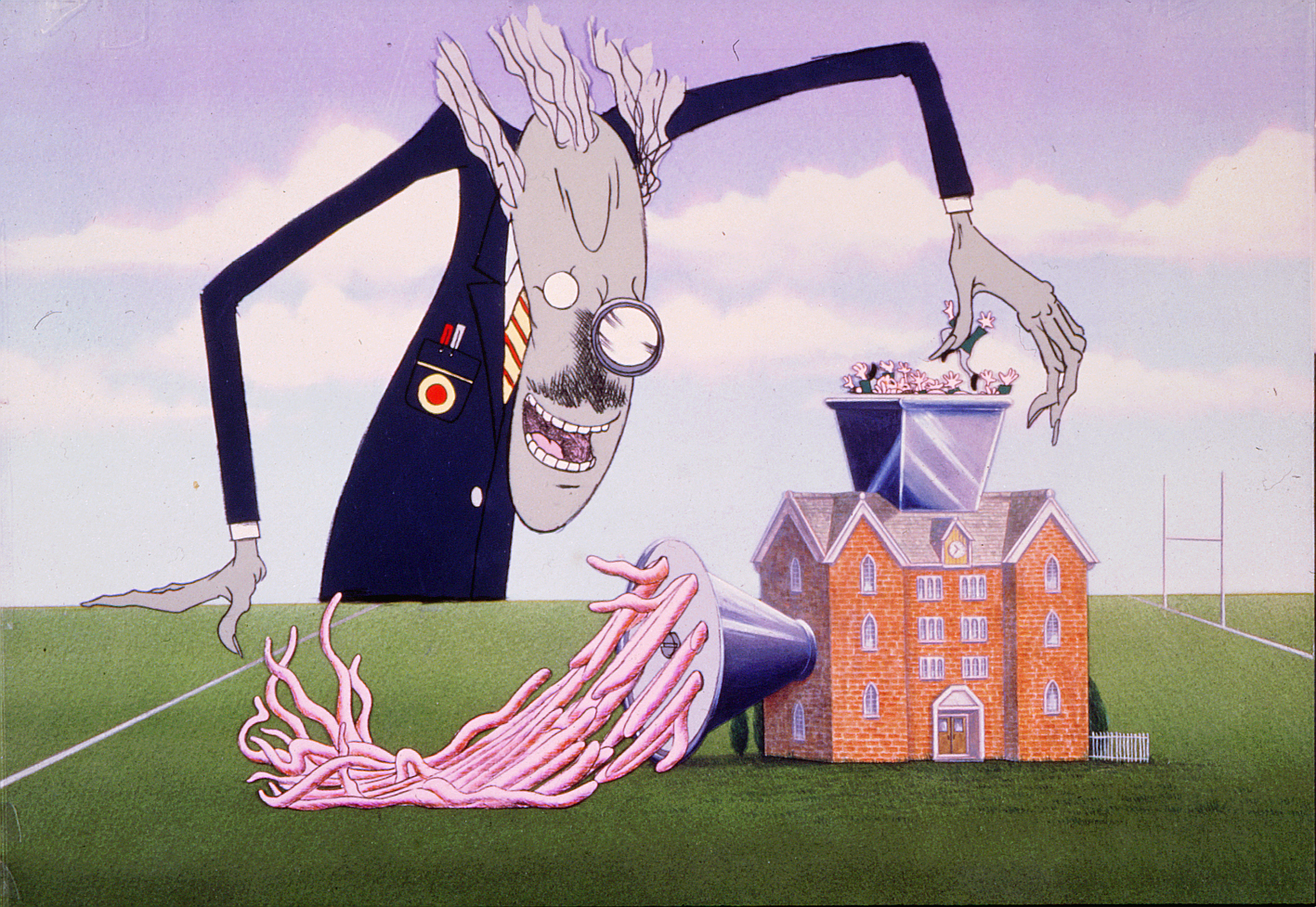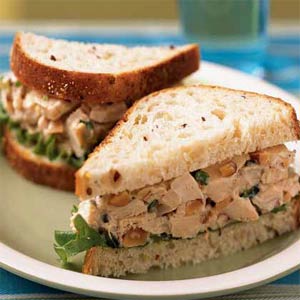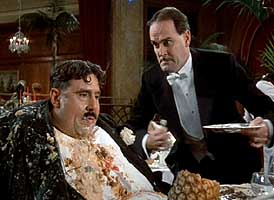People shouldn’t work preparing or serving food when they are sick because they may spread the illness. That’s become a food safety mantra, and yet outbreaks are repeatedly traced back to sick food  workers – like the 300 who got sick with norovirus at the Haaaaarvard faculty club earlier this year after 14 food service employees were discovered to be working while sick. Or the 529 who got sick with norovirus at Heston Blumenthal’s Fat Duck restaurant last year, where again, the presence of sick food workers was cited as a contributing factor to the outbreak.
workers – like the 300 who got sick with norovirus at the Haaaaarvard faculty club earlier this year after 14 food service employees were discovered to be working while sick. Or the 529 who got sick with norovirus at Heston Blumenthal’s Fat Duck restaurant last year, where again, the presence of sick food workers was cited as a contributing factor to the outbreak.
There’s a difference between saying what should be done – sick workers stay at home – and actually doing it – food service workers may get fired, whether they work with divas or in dives.
Medical doctors are the same.
The Associated Press reports more than half of doctors in training said in a survey that they’d shown up sick to work, and almost one-third said they’d done it more than once.
Dr. Anupam Jena, a medical resident at Massachusetts General Hospital in Boston, developed food poisoning symptoms halfway through an overnight shift last year, but said he didn’t think he was contagious or that his illness hampered his ability to take care of patients.
Jena, a study co-author, said getting someone else to take over his shift on short notice "was not worth the cost of working while a bit sick." He was not among the survey participants.
The researchers analyzed an anonymous survey of 537 medical residents at 12 hospitals around the country conducted last year by the  Accreditation Council for Graduate Medical Education. The response rate was high; the hospitals were not identified.
Accreditation Council for Graduate Medical Education. The response rate was high; the hospitals were not identified.
The results appear in Wednesday’s Journal of the American Medical Association.
Nearly 58 percent of the respondents said they’d worked at least once while sick and 31 percent said they’d worked more than once while sick in the previous year.

 "Everything is being done to ensure that the events and the food service at Lucas Oil Stadium are all what we expect them to be, and we’ll continue to do so."
"Everything is being done to ensure that the events and the food service at Lucas Oil Stadium are all what we expect them to be, and we’ll continue to do so.".jpg) The two restaurants were identified by
The two restaurants were identified by  It means if you’re sick, don’t work.
It means if you’re sick, don’t work..png) I’m also not a fan of guides to good practices of which, in my opinion, we shouldn’t expect so much. The guide shouldn’t be a white cane for the blind when it comes to matters of hygiene and food safety. But I also know that some people have been waiting, according to a message published on la liste Hygiène on July 3, 2010, “…for at least 8 years, [for] the
I’m also not a fan of guides to good practices of which, in my opinion, we shouldn’t expect so much. The guide shouldn’t be a white cane for the blind when it comes to matters of hygiene and food safety. But I also know that some people have been waiting, according to a message published on la liste Hygiène on July 3, 2010, “…for at least 8 years, [for] the .jpg) obligation applicable for us? I don’t believe so according to certain reports we see (see “Hygiene in the food service industry”).
obligation applicable for us? I don’t believe so according to certain reports we see (see “Hygiene in the food service industry”). Resumen del folleto informativo mas reciente:
Resumen del folleto informativo mas reciente: and associate administrator at Central Louisiana State Hospital have, as they politely say in the South (and smile while the knife goes in), left the facility.
and associate administrator at Central Louisiana State Hospital have, as they politely say in the South (and smile while the knife goes in), left the facility. Waukesha County health officials confirmed Monday
Waukesha County health officials confirmed Monday The venerable
The venerable  Motley Crue big hair, and proclaim, ‘OMG, is it 1985?’ or something like that.
Motley Crue big hair, and proclaim, ‘OMG, is it 1985?’ or something like that.